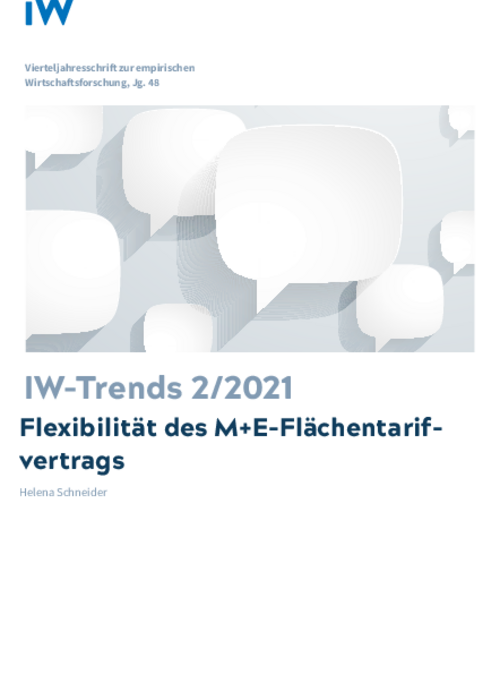Companies which are bound by sector-level collective agreements in the metal and electrical industry yet are keen to invest or to protect jobs in times of economic difficulty can negotiate supplementary agreements allowing them to deviate temporarily from the provisions of the sectoral agreements.

Achieving Flexibility Within Collective Bargaining in the Metal and Electrical Industry: Are Supplementary Agreements a Cure-all?

Companies which are bound by sector-level collective agreements in the metal and electrical industry yet are keen to invest or to protect jobs in times of economic difficulty can negotiate supplementary agreements allowing them to deviate temporarily from the provisions of the sectoral agreements.
The present article examines how this form of flexibility works in practice. An analysis of almost 400 supplementary agreements shows that working-time and pay provisions are where the main adjustments are made. 44 per cent of the agreements examined extended working hours, while 47 per cent provided for reductions in monthly pay or in one-off payments. Deviations in other areas, such as part-time work for older workers or fixed-term employment contracts, are also possible but were found in only 7 per cent of the agreements under scrutiny. Where employers and the German Metalworkers’ Union are willing to cooperate, a wide range of adjustments are possible. However, especially for smaller companies, the effort involved in negotiating and the commitments required of employer mean that supplementary collective agreements are by no means a panacea

Ergänzungstarifverträge als Allheilmittel?

More on the topic

German Wage Policy between Inflation and Stagnation: Are Conflicts with the Aims of Monetary Policy Looming?
After the economic and financial crisis of 2008/9, the German labour market soon began to recover, creating scope for a comparatively expansive wage policy.
IW
The Pros and Cons of Trade Union Membership
The decline in collective bargaining coverage in Germany is often attributed to the reluctance of companies to join an employers' association which negotiates collective agreements.
IW